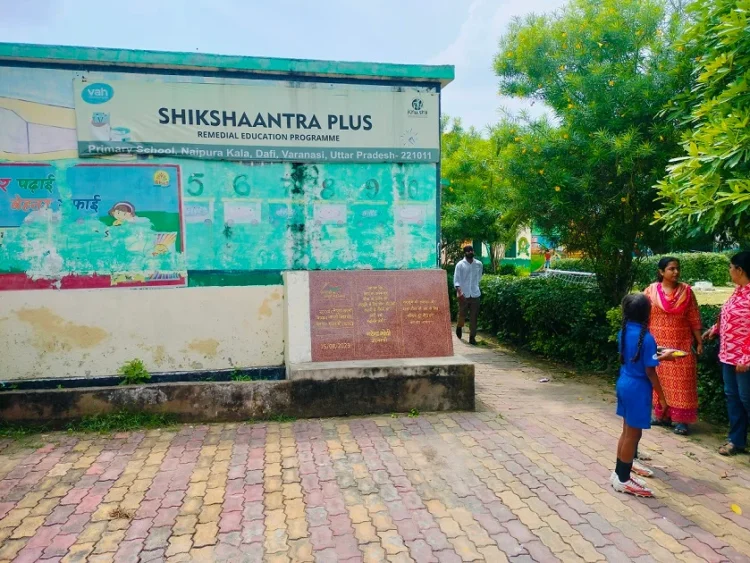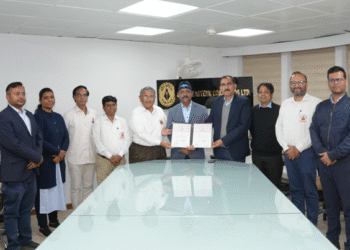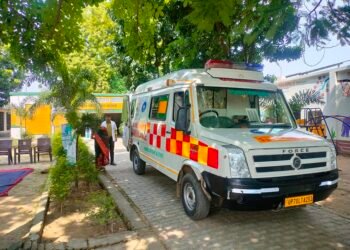From smart classrooms in Varanasi to football training with Real Madrid Foundation, ROADIS proves that CSR can bridge the gap between infrastructure development and inclusive growth.
VARANASI (India CSR): Corporate Social Responsibility (CSR) is no longer seen merely as a legal compliance or a tick-box exercise. In the past, many companies approached CSR with the mindset of fulfilling statutory obligations. But today, CSR has become a powerful tool to shape brand identity, connect with communities, and create sustainable impact. Globally, businesses have acknowledged that growth without social inclusion is incomplete. Education, healthcare, environment, and community development are now seen as core areas where companies can create real change.
Spanish infrastructure major ROADIS exemplifies this shift. While its core business is building highways in India, the company believes that roads are not just about moving vehicles—they are about connecting people, aspirations, and opportunities. With this philosophy, ROADIS has launched several CSR initiatives in India that focus on empowering children, uplifting communities, and creating long-lasting change. The company views CSR as a responsibility to society, not just an extension of its business. This people-centric vision is already visible in the outcomes of its education programs, which are transforming government schools near its project areas.
Shikshaantra Plus Program: Building Equality in Education
ROADIS partnered with KHUSHII NGO to implement the Shikshaantra Plus Program, an initiative aimed at upgrading government schools with modern facilities and learning opportunities. The program’s goal is to bridge the gap between government and private schools by offering underprivileged children the same environment and resources that wealthier students enjoy.
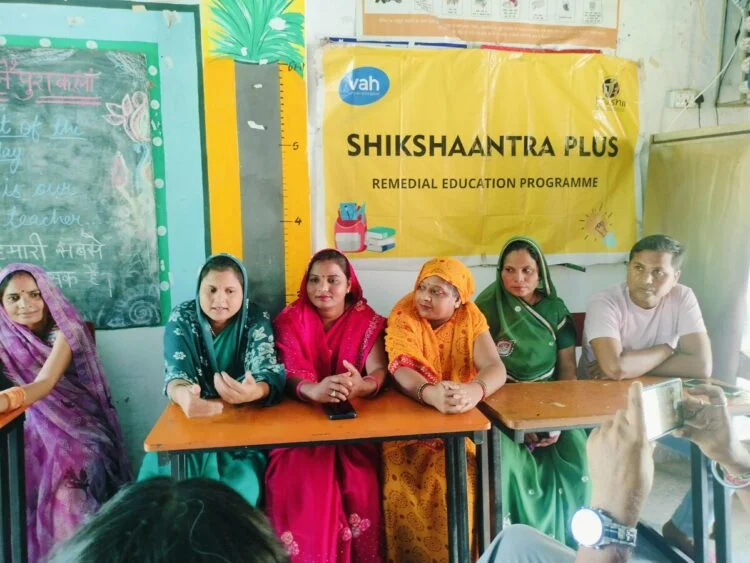
So far, ROADIS has adopted 10 schools under this initiative: three in Varanasi (Uttar Pradesh), two in Bihar, one in Ajmer (Rajasthan), and four in Surat (Gujarat). All the schools are located near ROADIS’ project sites to ensure seamless employee volunteer engagement. Beyond physical upgrades, the program emphasizes holistic learning—introducing digital tools, hiring subject-specific teachers, and providing counseling support for students’ mental health.
The program’s uniqueness lies in its depth. Instead of short-term aid, ROADIS has embedded long-term structural changes, ensuring students receive continuous support. Slowly, the initiative has started transforming the lives of children who once struggled for basic educational opportunities. By demonstrating how CSR can directly address gaps in public education, ROADIS has set a benchmark for companies in infrastructure and beyond.
Dafi School, Varanasi: A Story of Change
One of the most inspiring stories comes from Dafi village in Varanasi, where ROADIS has adopted a struggling government school. Before intervention, the school had 165 children but only two teachers. Students sat on bare floors with no benches, chairs, or proper blackboards. Access to safe drinking water and sanitation facilities was missing. Ideally, India’s school system mandates a ratio of one teacher for every 35 students, but here it was closer to 1:80, making quality education almost impossible.
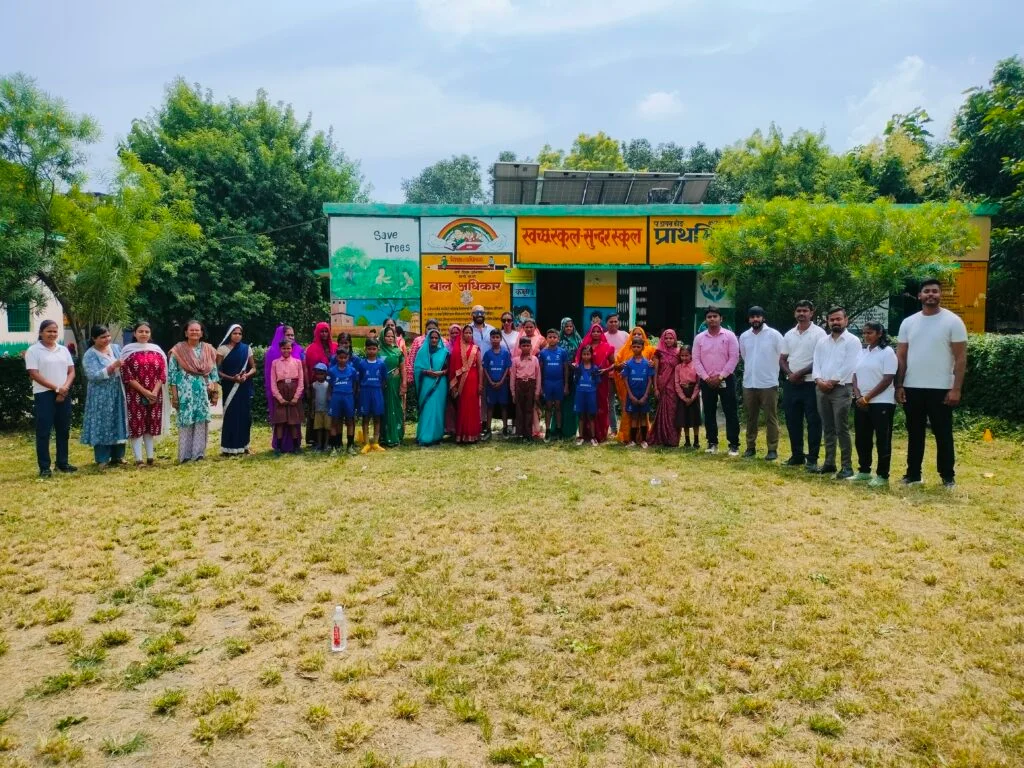
ROADIS prioritized infrastructure development as the foundation of change. The classrooms were painted and furnished with desks and chairs. Playgrounds were leveled, and RO drinking water systems and handwashing stations were installed. Toilets were renovated to meet WHO hygiene standards. This transformation not only gave children a clean and safe environment but also instilled a sense of dignity in them.
Parents and community members witnessed a remarkable shift—children began enjoying school instead of seeing it as a burden. What was once a neglected government facility soon became a hub of enthusiasm, curiosity, and learning. For many families, Dafi School became a symbol of what education could look like when supported by thoughtful CSR interventions.
Improving Quality of Learning Beyond Infrastructure
Through the Shikshaantra Plus program, ROADIS introduced remedial teachers for Mathematics and English and introduced computer education through a dedicated teacher for IT and STEM learning. Importantly, a mental health counselor was appointed to guide children through issues such as stress, low confidence, and behavioral challenges.
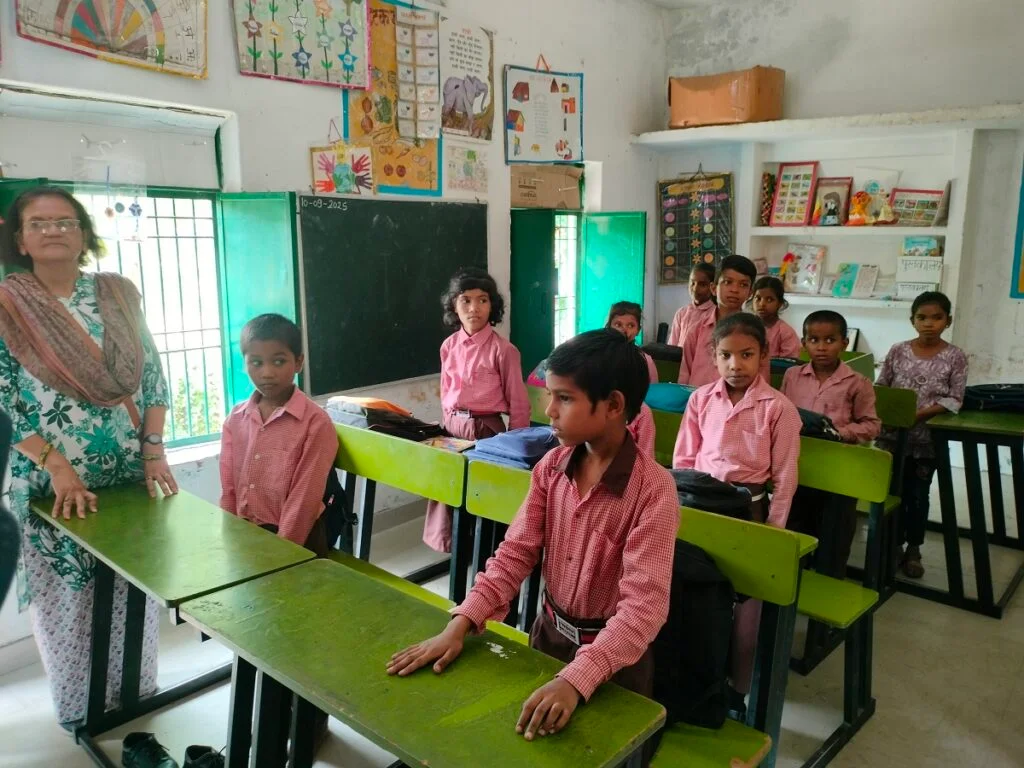
This comprehensive support helped raise academic performance significantly. Children who earlier struggled with basic concepts started excelling in subjects that once intimidated them. Teachers introduced interactive lessons, blending art, crafts, and creative methods into the curriculum. ROADIS’ support ensured that learning extended beyond textbooks, nurturing curiosity and critical thinking.
The initiative also highlighted the importance of emotional well-being in education. With counseling sessions, students began developing resilience and self-belief. Parents reported a noticeable increase in their children’s confidence. Teachers, too, felt empowered with resources and additional staff, which enabled them to focus more on quality than just managing overcrowded classrooms.
ROADIS’ holistic approach demonstrated that quality education is not just about physical infrastructure but also about intellectual and emotional resources. By addressing both academic and psychological needs, the program created a nurturing ecosystem for students.
Smart Classrooms: Bringing Digital Learning to Rural Schools
In today’s world, education cannot remain confined to chalkboards and textbooks. Recognizing this, ROADIS introduced smart classrooms in the schools it supports. Large-screen smart TVs were installed in classrooms from grade 1 to 5, giving students access to interactive, digital learning tools.
This intervention sparked a dramatic change in students’ engagement. Earlier, many students left after the mid-day meal, lacking motivation to stay. But with smart classes, children began arriving early and staying longer, eager to explore interactive lessons. Teachers reported higher participation, reduced absenteeism, and growing enthusiasm for subjects like science and mathematics.
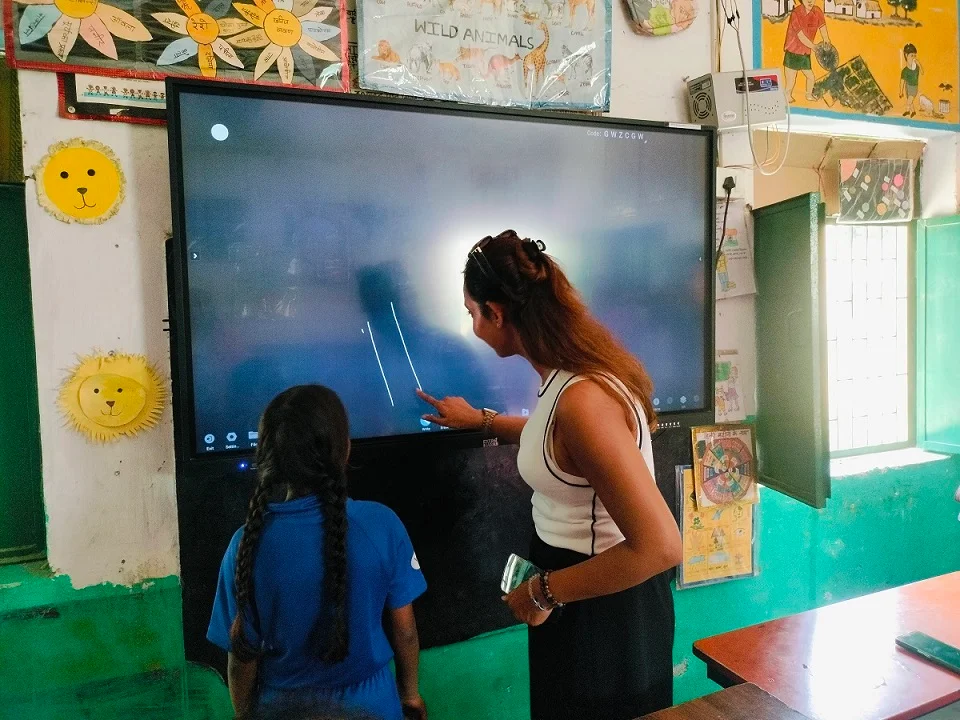
Beyond academics, digital learning also gave rural children exposure to technology they rarely encountered at home. For many, this was their first interaction with digital devices outside of a parent’s mobile phone. Smart classes also aligned these children with modern educational trends, reducing the gap between government and private schooling.
Most importantly, dropout rates dropped significantly. Attendance surged as children found joy in learning. Smart classrooms turned dull government classrooms into exciting learning spaces, where education became an engaging experience instead of a daily chore.
Recognition as a Model School
The success of ROADIS’ intervention at Dafi School was so striking that the Varanasi district administration declared it a Model School. This recognition meant that the transformation achieved through CSR could now be replicated across other government schools in the district.
The nomination was a matter of pride for both ROADIS and KHUSHII NGO. It validated their approach of blending infrastructure, technology, and holistic teaching resources. More importantly, it demonstrated how public-private collaboration can bring large-scale change.
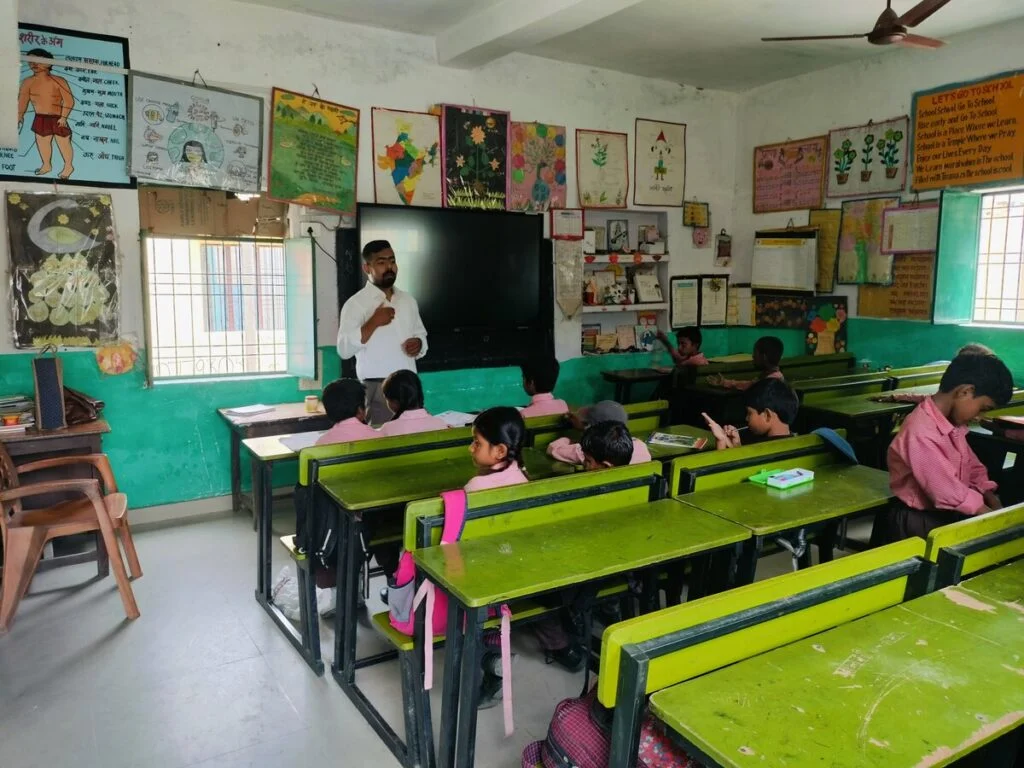
Model School recognition also boosted morale within the local community. Parents who once hesitated to send their children to government schools started seeing them as credible alternatives to private institutions. This change in perception reflects a broader systemic impact: CSR initiatives, when strategically aligned, can influence government policies and set new benchmarks in education reform.
Sports and Life Skills: Partnership with Real Madrid Foundation
Education for ROADIS is not limited to academics. The company partnered with the Real Madrid Foundation to establish Social Sports School in 2 schools in Varanasi where 200 children are being trained on RMF methodology which is a blend of value education taught through football training. This training is being imparted to 200 students in the city. Professional coaches, trained by experts from Spain, were brought in to guide children.
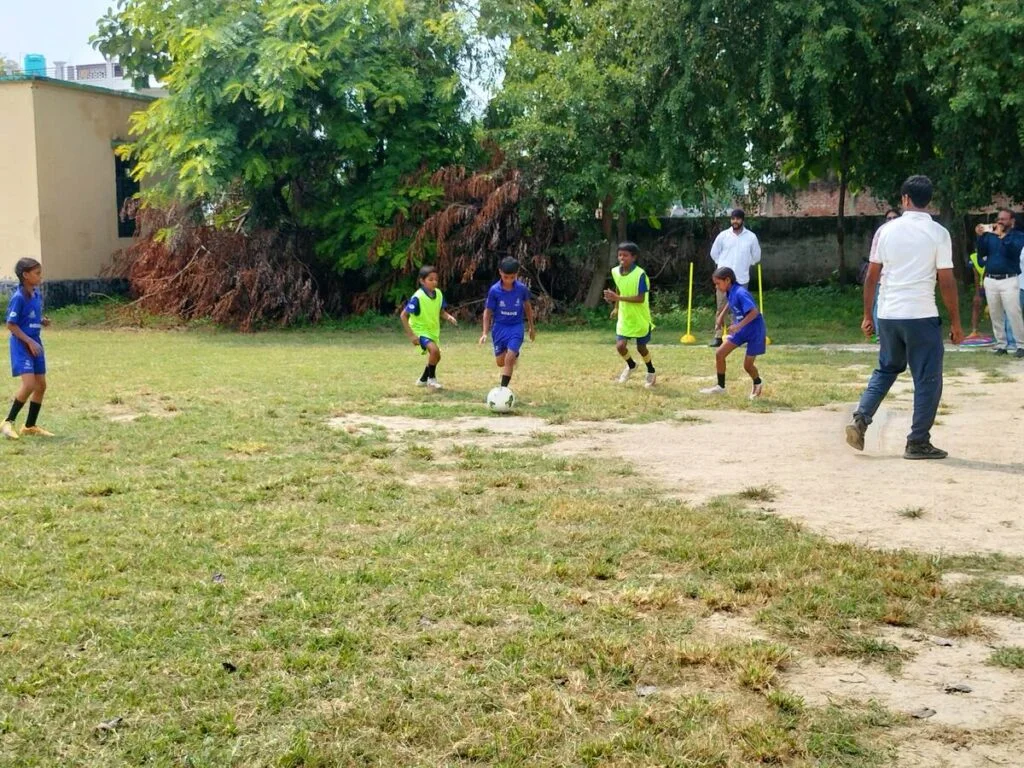
The initiative goes beyond teaching football—it uses sport as a medium to instill discipline, teamwork, and leadership. Through structured training sessions, children learn collaboration, time management, and perseverance. The program also opens doors to global exposure, giving rural students a chance to participate in a sport that connects them to the wider world.
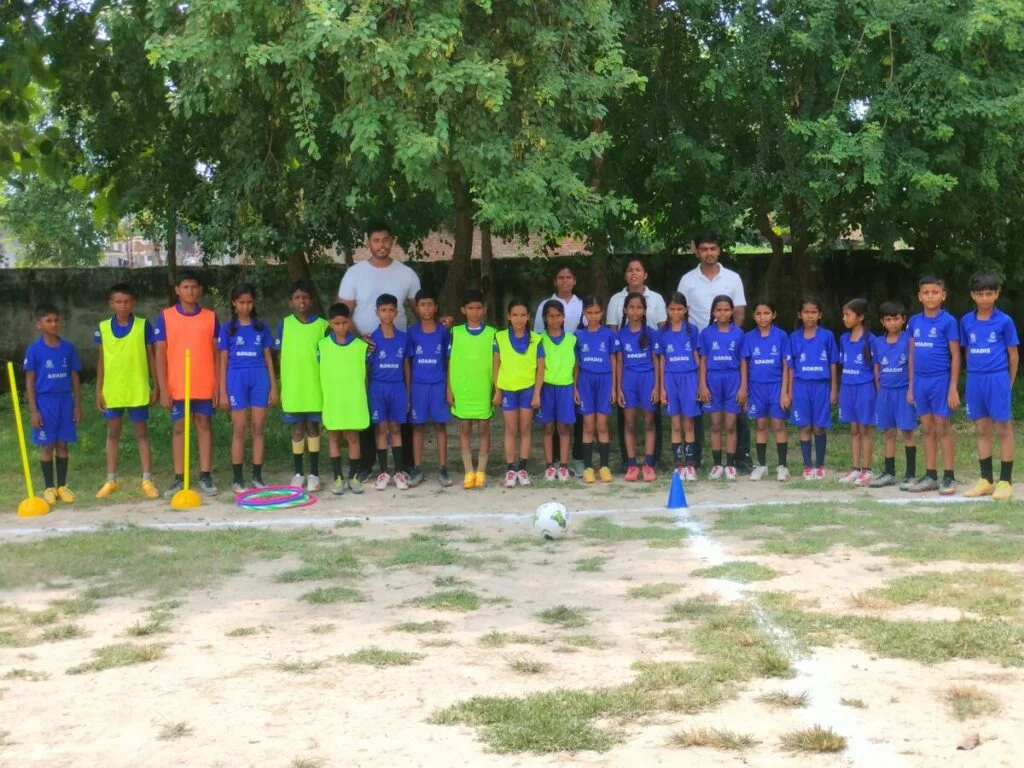
In a cricket-dominated country like India, football provides diversity and broadens opportunities for children. More importantly, it teaches values that extend into daily life. Parents have observed positive changes in their children—more discipline at home, improved focus on studies, and higher self-esteem.
This sports program underscores ROADIS’ belief that CSR should address holistic development. By combining education and sports, the company ensures children are prepared not just for exams but for life itself.
Highway Projects Linked with Community Growth
ROADIS is currently involved in major highway projects in India, including a 192 km stretch from Varanasi to Aurangabad, a 92 km stretch from Kishangarh to Beawar, and a 132 km stretch from Surat Hazira Port to the Maharashtra border. These projects impact thousands of communities directly and indirectly.
For ROADIS, highways are more than economic corridors—they are lifelines that enable access to jobs, healthcare, and education. This philosophy drives the company’s CSR programs, which are integrated with its project areas. The goal is simple: as infrastructure grows, so must the surrounding communities.
By aligning its CSR with highway development, ROADIS ensures that progress is inclusive. Villages near these highways benefit not only from improved connectivity but also from enhanced schools, sports facilities, and community engagement initiatives. The company has shown that infrastructure and community development can go hand in hand, creating long-term sustainable impact.
Community Engagement and Sustainability
ROADIS emphasizes that CSR programs should not be imposed from the outside but designed in consultation with communities. Before implementing any initiative, the company conducts baseline assessments, engages with panchayats, local authorities, and families, and identifies their most pressing needs.
This participatory model ensures that interventions are relevant and sustainable. Schools are selected based on local input, and programs are customized to fit community realities. By involving stakeholders, ROADIS builds trust and fosters ownership among the people it serves.
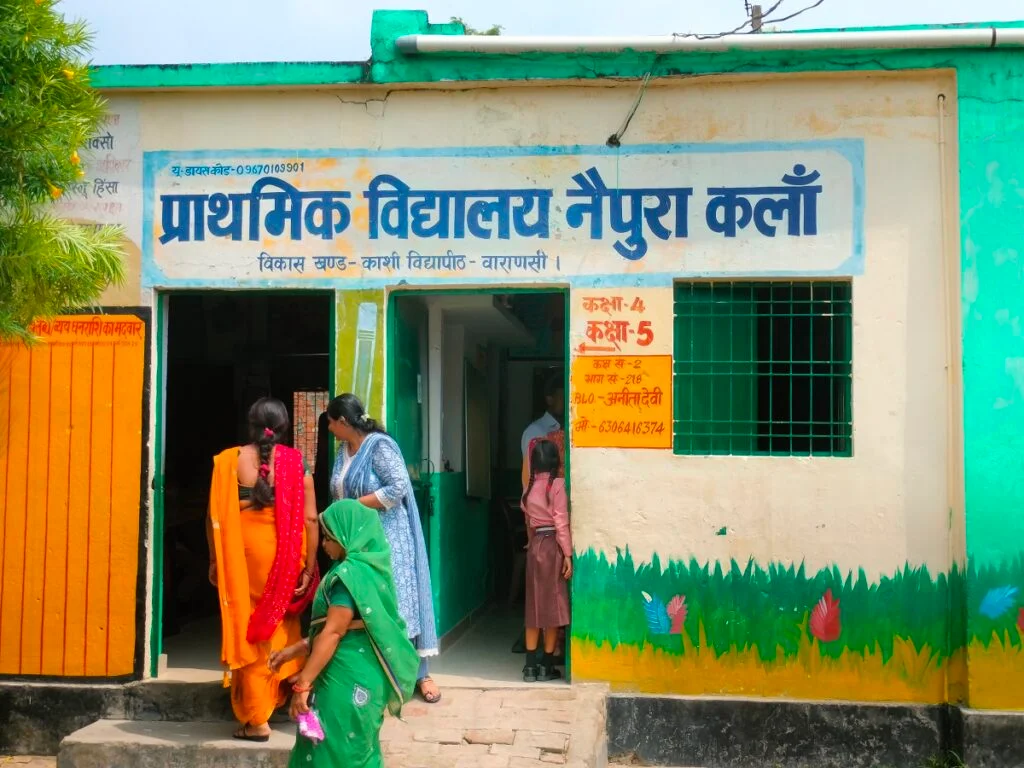
Such an approach guarantees longevity. Communities are more likely to support and maintain projects when they feel involved in the process. ROADIS’ CSR, therefore, is not a top-down charity model but a collaborative, needs-driven system designed for long-term results.
Mothers and Families as Partners in Education
ROADIS also recognizes the critical role families, especially mothers, play in shaping children’s education. As part of its CSR programs, mothers are regularly engaged in feedback sessions, school visits, and progress reviews.
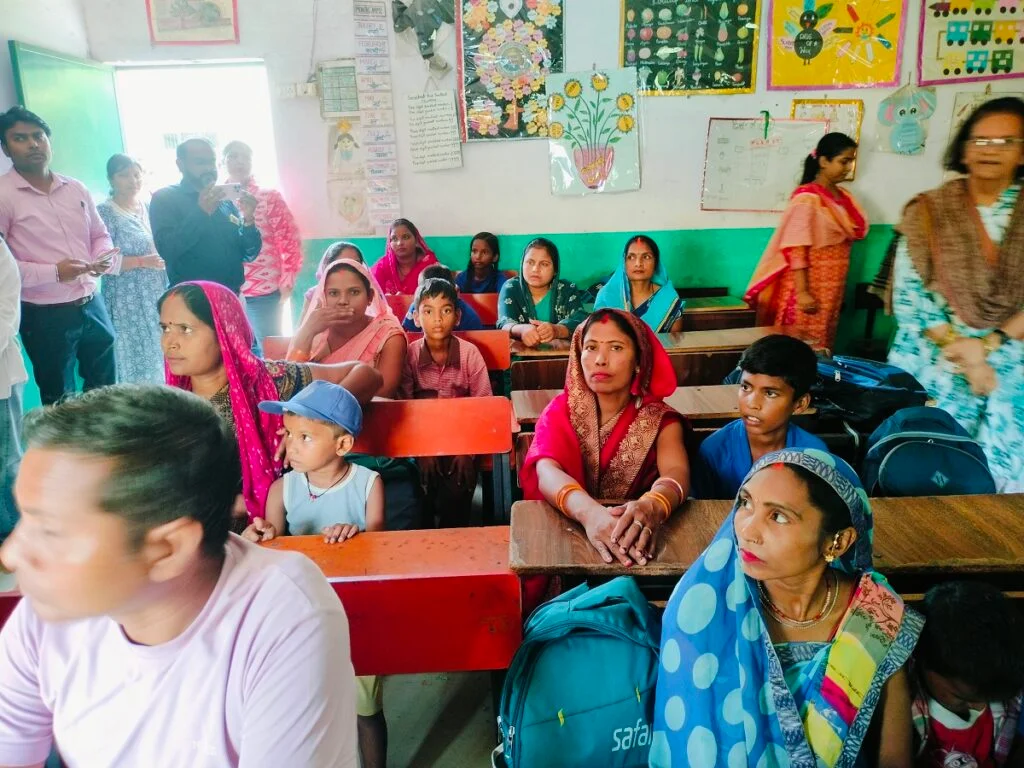
This inclusion ensures that education does not stop at the school gate. Mothers encourage children to practice lessons at home, reinforce hygiene habits, and support participation in sports and extracurricular activities. Their involvement creates a cycle of accountability—teachers, students, and parents working together for the same goal.
By empowering mothers to become active stakeholders, ROADIS extends the impact of CSR beyond classrooms into homes. This family-driven model ensures that the benefits of education are deeply rooted in the community.
Multi-Dimensional Impact of CSR
ROADIS’ initiatives have produced wide-ranging results:
- Attendance levels have improved, while dropout rates have fallen.
- Students show stronger academic skills, particularly in English and mathematics.
- Digital literacy has expanded, giving rural children exposure to modern technology.
- Sports programs have fostered leadership, discipline, and confidence.
- Community perceptions of government schools have shifted positively.
These outcomes demonstrate the transformative power of CSR when implemented with vision and commitment. ROADIS has successfully shown that corporate involvement in education can reshape entire communities.
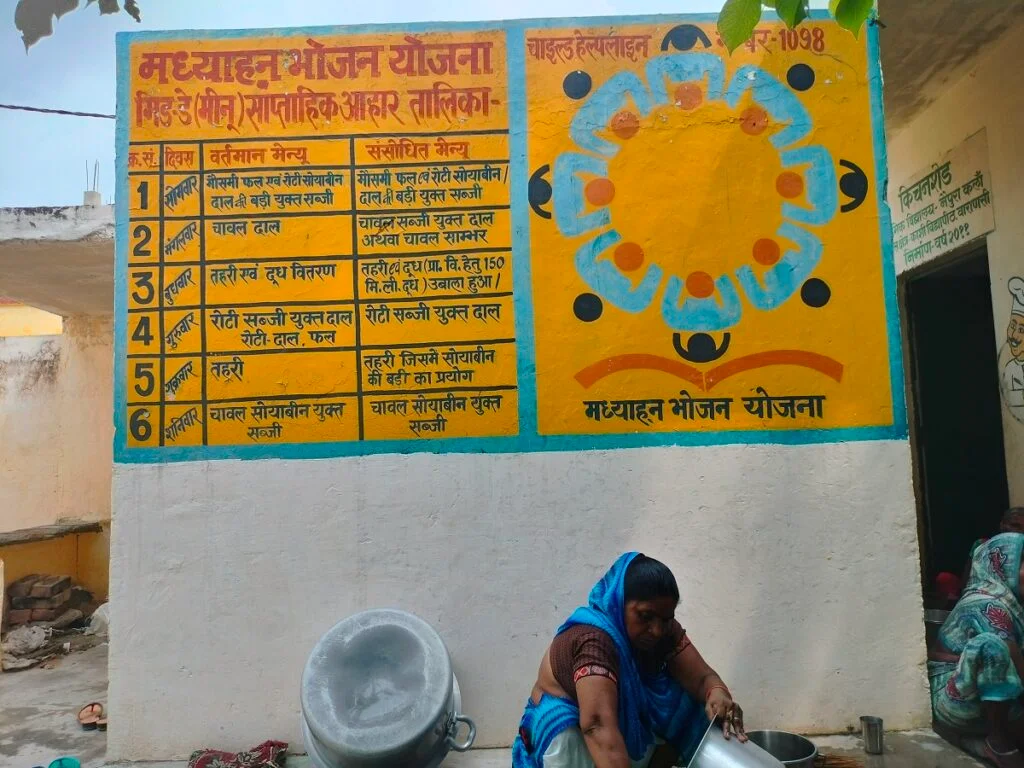
ROADIS’ Philosophy: Beyond Business, Toward Responsibility
For ROADIS, CSR is built on the principle of “People, Planet, Progress.” It is not treated as an afterthought but as a parallel responsibility alongside its business operations.
As Ena Chakravorty, Communication and CSR Director of ROADIS in India, explains:
“CSR is not just a legal requirement for us—it is a moral responsibility. By investing in education and community development, we are building a future where opportunities are equal for all.”
Her words encapsulate the company’s ethos: highways may connect cities, but CSR connects lives and dreams.
You Learn
ROADIS’ CSR model demonstrates that roads do more than reduce physical distance—they bridge social inequalities. By prioritizing education, sports, and community development, the company is laying strong foundations for the future.
The success of its programs in Varanasi, Ajmer, Surat, and Bihar proves that when businesses extend their vision beyond profit and embrace social responsibility, they can create sustainable impact. ROADIS’ story is not just about highways—it is about creating pathways to opportunity, equality, and progress.
(Copyright@EconomyIndia)

